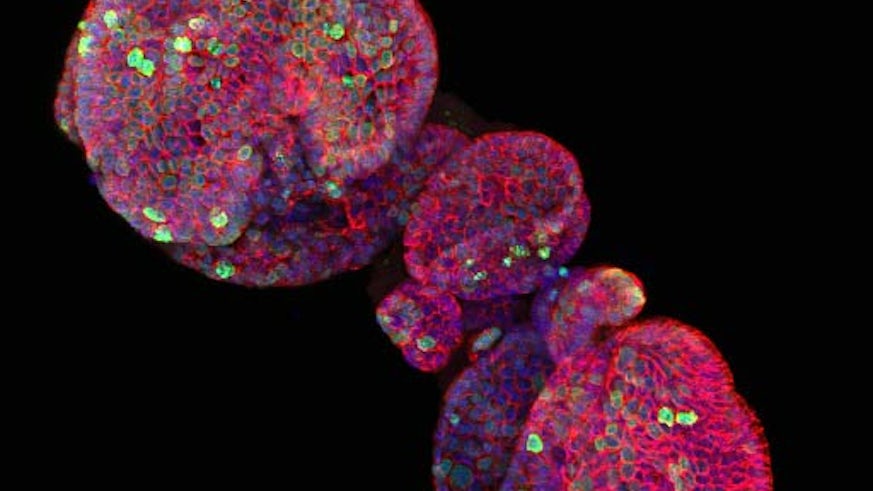AMMF funds vital bile duct cancer research
12 August 2019

Cholangiocarcinoma is a rare disease, with only two percent of patients with metastatic disease surviving past five years. But new funding is helping Cardiff University researchers to find out crucial information about this form of cancer.
AMMF, the Cholangiocarcinoma Charity, has awarded £25,000 to Dr Toby Phesse from the European Cancer Stem Cell Research Institute at Cardiff University, to investigative cell signaling pathways in cholangiocarcinoma.
Dr Toby Phesse, Cardiff University, said: “Cholangiocarcinoma is cancer of the bile ducts and is the second most common form of liver cancer. The incident rates of the disease are rising.
“Currently therapies for cholangiocarcinoma include surgery, but there is no targeted approaches for the treatment of cholangiocarcinoma.
“There is a gap in our understanding of how the communication between cells can cause growth and metastasis in cholangiocarcinoma. This information is needed for us to identify and develop the urgently needed new therapeutic strategies.”
Dr Phesse’s lab in the European Cancer Stem Cell Research Institute focuses on looking at Wnt signaling, which is involved in many functions within a cell, and deregulation of this signaling can lead to many cancers, including cholangiocarcinoma.
Previous research has demonstrated that inhibiting Wnt signaling can reduce the growth of cholangiocarcinoma and reduce metastasis.
“A receptor called Fzd is involved in Wnt signaling and we want to establish the potential link between Wnt signaling, Fzd and cholangiocarcinoma through our research.
“This project, thanks to funding from AMMF – The Cholangiocarcinoma Charity, will use models of cancer and pharmacological experiments to identify how Fzd receptors regulate the ability for cholangiocarcinoma to spread around the body and determine the therapeutic benefit of targeting Wnt signaling to treat metastatic cholangiocarcinoma,” added Dr Phesse.
